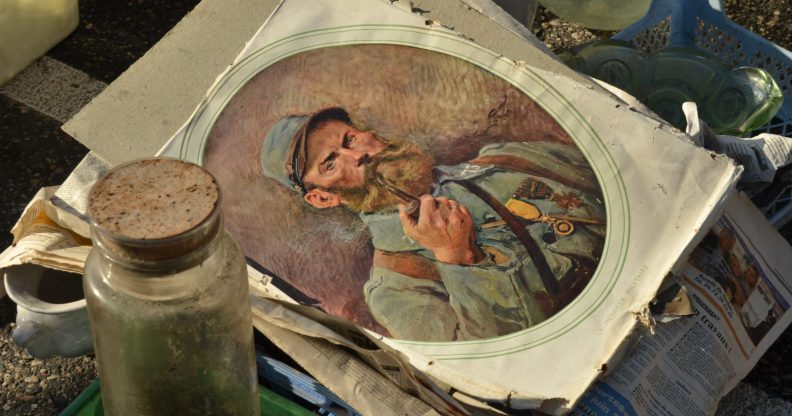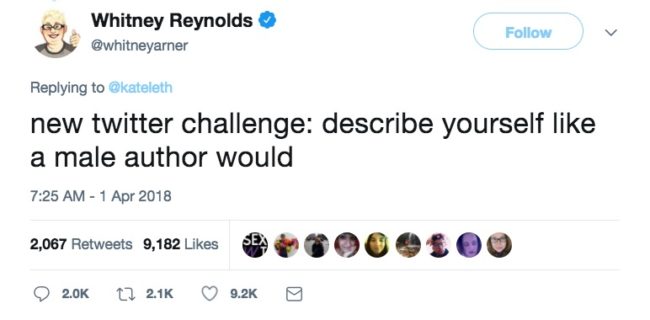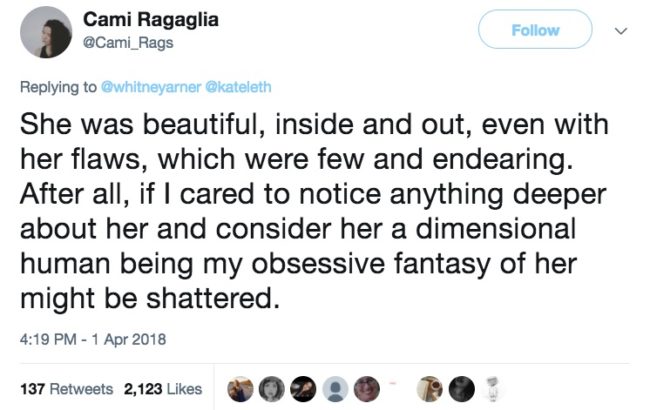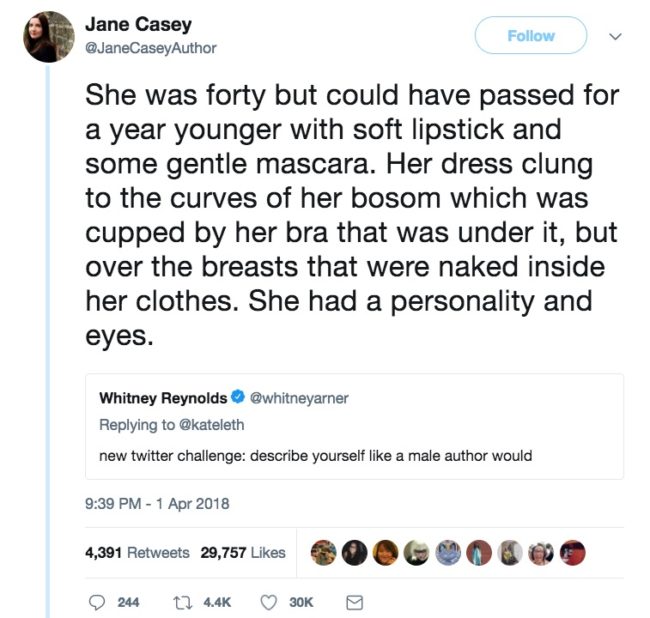Women are sharing how male authors would describe them and the results are hilarious

How many books have you read that describe women in a manner likened to a sex doll or akin to having the emotional complexity of a potato?
Reader, I tried to count these figures on my disappointed hands and found that even a spreadsheet wouldn’t be able to collate the results for me.
An English degree later and a little bit wiser, I am one of the many people who are simply disappointed by the embarrassing canon of literature that is celebrated in spite of its boneheaded descriptions of women.
This is where writer and podcaster Whitney Reynolds stepped in.
Reading yet another deplorable tweet that featured a bro novelist description of a woman, she decided to open the floor to create potentially the best Twitter thread of all time – just how would male authors describe you?

The responses were, of course, so incisive and on it that even the male gaze shifted their glare downward.


“It was late at night and I’d had some wine and I thought it would be funny if people on Twitter had done their part,” Reynolds said to BBC Radio 4.
“There’s been a lot of responses, with many saying that the male author would only see them as the sum of their body parts.
There’s been lots of talk about breasts, but what’s been most interesting to me has been that other women have assumed because of their age, their weight, or even their ethnicity, that they would be invisible.”




A recent Twitter thread sparked a conversation about the lack of women authors that are considered to be part of the literary canon.
Some Twitter users shared that they hadn’t even studied one female writer while they were at school.
“With over 500,000 GCSEs students sitting exams annually, the texts set by the exam boards have a huge impact and influence,” campaign group For Book’s Sake told Stylist.
“It’s becoming more and move heavily skewed towards white men, a demographic with a long-standing tradition of dominating past and present literary heritage, to the exclusion of women writers.”

